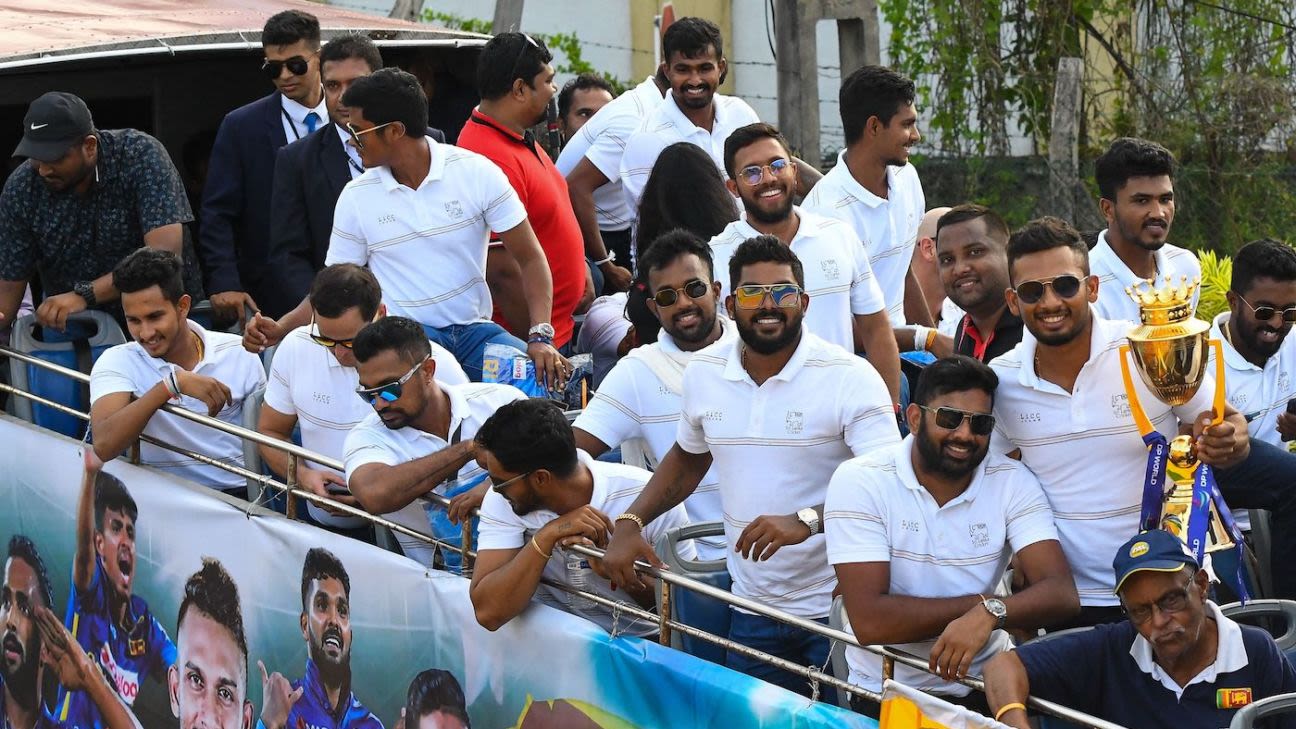“When Wanindu goes and gives some advice to a younger player, a lot of the time it’s useful. Similarly, we always consult the players before taking decisions. This is why it makes my job easy; I can’t take the credit, as a team each person involved deserves the credit.”
He is not wrong though. This Sri Lanka side is the quintessential ‘more than the sum of its parts’ unit – it’s unlikely that many of their players would find their way into the starting XIs of any of the other top T20I sides.
A tactical of elements go into the making of such a victory, but for Shanaka, having a more democratic approach to decision-making and keeping his players relaxed and in an optimal mindset to perform their skills in high-pressure situations was just as crucial.
“As a captain, the best thing I can do is give a player the confidence to perform their skills.” he said. “I also don’t get upset if they make a mistake. A lot of cricket is about emotions; if you can control your emotions, as a team you can go very far.
“I don’t like to put limits and pressure on players. If you put a limit on a player, you can’t get the best out of them on the field. It’s just as important to get them feeling good on the ground as well as off it. As a side, we’ve started to understand that. So the players were quite relaxed and the results followed from that.”
“The loss to Afghanistan was unexpected. We never expected to lose like that – they were not a side we expected to lose like that to”
The loss to Afghanistan was Sri Lanka’s first and last of the tournament, with each subsequent win more impressive than the previous one. For Sri Lankan fans watching at home and in the stands, what they were seeing was hardly believable. Was this really the same team that had lost a home and away series to Australia, and was comprehensively beaten in India earlier this year? Shanaka understands their apprehensions, though he himself never shared such feelings of uncertainty – even after Sri Lanka were bowled out for 105 by Afghanistan.
“At the start, the goal was to make it to the second round and just perform well in the tournament, because we felt we had a good side,” he said. “But the loss to Afghanistan was unexpected. We never expected to lose like that – they were not a side we expected to lose like that to. We had gone to the tournament well prepared, our fitness levels were very good, we just needed to trust that. So we didn’t panic or change too many things because we knew the talent we had in the side.”
One of the most impressive aspects of Sri Lanka’s performance was that their wins came in almost exclusively must-win scenarios – something that makes them more memorable. And in such high-stakes games, Shanaka was aware that the team that handled the pressure better would invariably come out on top.
“When you talk about cricket, there’s always pressure. At no time will you be playing a game without pressure. Every team comes well prepared nowadays. The analysis has gotten to such a level now, that we know that in every game, teams come knowing what our weaknesses are and how to play us. I’ve always said that we have a good variety, whether it comes to batting or bowling. As a captain, that’s always great to have in giving us the best chance to win.”
Sri Lanka’s next assignment is the T20 World Cup in Australia, one which they will first have to qualify for. Preparations for the tournament will begin on September 25, when the team heads off for a training camp in Pallekele, Kandy – where pitches are as close to those in Australia as one can find in Sri Lanka.
“I think our skill level is quite high, while our fitness levels are also really good. The only thing is seeing how well we will be able to adjust to the conditions [in Australia]. So the camp in Kandy will help our players in getting used to conditions that are similar to those in Australia, so we will get a better idea of how to bat and bowl. We also had a tour of Australia earlier this year, which would have given the players a better idea on how to play in those conditions.”
The fact that this Sri Lankan side is largely made up of players yet to hit the traditional peak years also gives Shanaka reason for optimism for the future.
